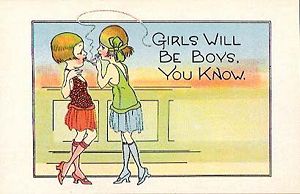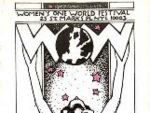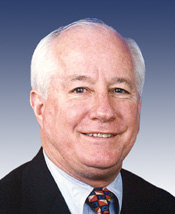OutHistory:Sandbox
Fill in Stubs
Free. Interesting. Reliable. Educational. It's About Time!Welcome to this prototype in development of OutHistory.org, a website about lesbian, gay, bisexual, and transgender history, to which anyone with data or skills can contribute. Directed by historian Jonathan Ned Katz, and coordinated by Lynley Wheaton, OutHistory is produced by The Center for Lesbian and Gay Studies, at the City University of New York Graduate Center, and funded by a two-year grant from the Arcus Foundation]. For more about OutHistory.org, see About.
OutHistory.org is an experiment in history by the people. You can contribute. Here's how. Discuss Please explore the site and comment on it using the "Discuss" option on this page. Comment on a particular entry by using the "Discuss” section of each article. Create Content This is a site to which we urge users to contribute content. Take a look at the Participate page and find out how to create entries, submit documents, and offer research, copyediting, administrative, graphic design, and other skills. If you are ready to create content, see Help for first steps. Donate: And please visit the Donate page and help fund the development of this site. Browse by Category
Stubs (Content Requests)ParticipateThe content of OutHistory.org is both user-generated and solicited from independent scholars, institutionally-based researchers, and anyone with special knowledge. Users are encouraged to participate in creating the site, following the site’s Contributors’ Guidelines. Content can be submitted by any user interested in helping OutHistory.org make history, and we welcome that participation.
|
Content: To date, OutHistory has 2,488 articles. Featured ExhibitsOutHistory’s featured exhibits are curated by scholars or presented by knowledgeable researchers or collectors. They provide a focused look at a few, particular aspects of LGBTQ history. If you can help us expand the range of queer histories covered in future exhibits, please email outhistory@gc.cuny.edu. Postcards: Masculine Women, Feminine MenImages from the collection of Marshall Weeks Forty postcards from the early-20th-century reflect concerns about "masculine" women, "feminine" men. Out and Elected in the U.S.APhotographed by Ron Schlittler Openly gay and lesbian people elected to public office in the U.S. Lesbian TheaterCurated by Mimi McGurl Focusing on New York’s WOW Café and Theatre. Queer Youth - On Campus and in the MediaCurated by Sharon Ullman Activism on college and high school campuses and media representations of queer youth. The Pre-Gay Era in the USACurated by C. Todd White Homosexual rights organizations and publications in the U.S. from the 1950s to 1969. ChicagoCurated by John D’Emilio The first exhibit on the LGBTQ history of a particular city, town, or geographical area, People of African DescentCurated by Tavia Nyong’o Lorem ipsum dolor sit adipisicing elit, sed do eiusmod tempor incididunt ut labore et dolore magna aliqua. Colonial America: The Age of Sodomitical SinCurated by Jonathan Ned Katz All the original documents in Katz's Gay/Lesbian Almanac and Gay American History, and evidence discovered since. TransgenderCurated by XXXXXXXXXX, with the assistance of Tey Meadow Documents of people who did not conform with the sex and gender norms of their time. Native AmericansCurated by XXXXXXXX Lorem ipsum dolor sit amet, consectetur adipisicing elit, sed do eiusmod tempor incididu. |
|
|
Stubs
Here is the original code for the Browse
Browse by Category
Today is November 21, 2024
Some more text
Check out the Jim Kolbe's Article
Link to another Namespace
Example of How References Work
text text text text text text text text text text text text text text text text text text text text text text text text text text text text text text text text text text text text text text text text In 2008, OutHistory.org set a precedent. [1] The Sun is pretty big [2] This is a test by Jonathan Ned Katz. [3]
References
|
Play in our Sandbox
|
Template with Variables
Hello and welcome to OutHistory.org.
Thank you signing up and contributing to the project. Here are a couple of things you may find helpful as you navigate your way through the site:
- First, we suggest that you set up the correct time zone for yourself by visiting the preferences page. This will allow you see when articles have been posted and edited according to your local time, rather than Greenwich Mean Time. Click on the "Date and time" tab and simply click on the "Fill in from the browser" button to determine your time zone automatically. You can also set other useful defaults on the preferences page.
- Next, try editing your own user page to tell others a bit about yourself and get familiar with editing. You can access your user page by clicking on your username on the top of the sidebar.
- Each user on OutHistory has a user page and a talk page. Use your and others talk pages for discussion and communication. Just like on Wikipedia, it's a standard practice to indent your paragraphs one level further when engaging in a discussion. Type a single or multiple colons before each of you paragraphs to indent text (::Like this). Sign your edits automatically by typing four tilde characters (~~~~). If your discussion concerns a single article, edit that article's discussion page instead.
- Finally, for advanced editing see editing help and above all, experiment on the sandbox page rather than a real article page.
Lesbian Theatre
Curated by Mimi McGurl
This exhibit focuses on the lesbian theatre with an emphasis on the history of New York’s WOW Café and Theatre. This exhibit provides a wealth of primary sources from the personal papers of the founders of the theatre.
Queer Youth - On Campus and in the Media
Curated by Sharon Ullman
The queer youth exhibit focuses on activism on college and high school campuses as well as representations of queer youth in the media. This exhibit was researched by Bryn Mawr and Haverford students for a class on the History of Sexuality in America. Topics range from GSA’s to GLF to hate crimes perpetrated against at risk youth in the second half of the twentieth century.
Paragraph and Spacing issues
This is a paragraph.
To create another paragraph, I need to type the Enter (or Return) key twice. This gives a blank line in the source. If I type some text and hit my Return key only once and type some more text, it will still be considered one paragraph (see the source of this paragraph and how it's different from the displayed).
If I type the Return key three (or more times), I will be creating empty paragraphs on the page (see how there more space right after this paragraph, again check the source).
There is really no reason for having more than one blank line (two returns) in the source, Since paragraphs are already separated from on another by a bit of space comfortable for extended reading.
deleted from Welcome
(CLAGS),
City University of New York Graduate Center,
Arcus Foundation



